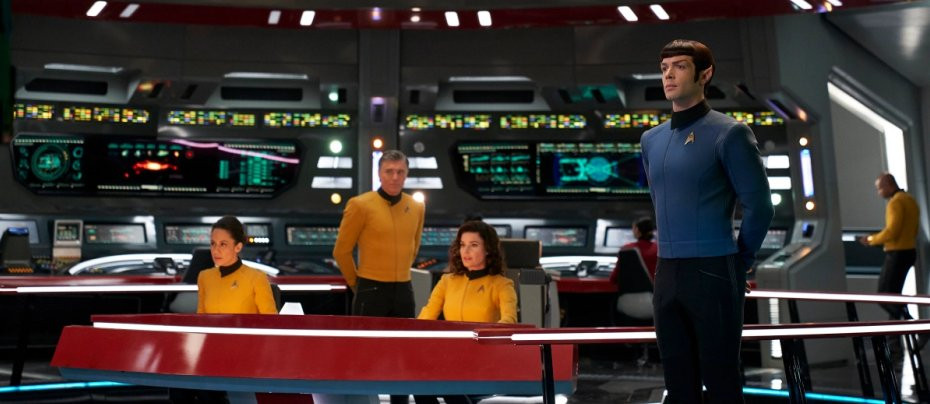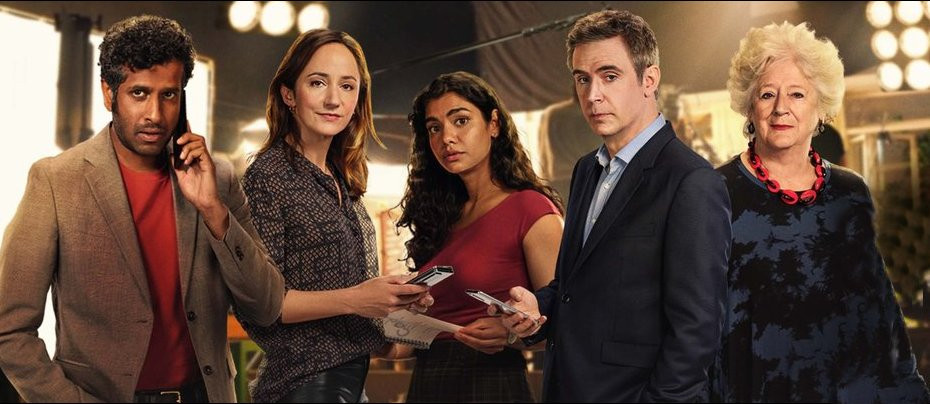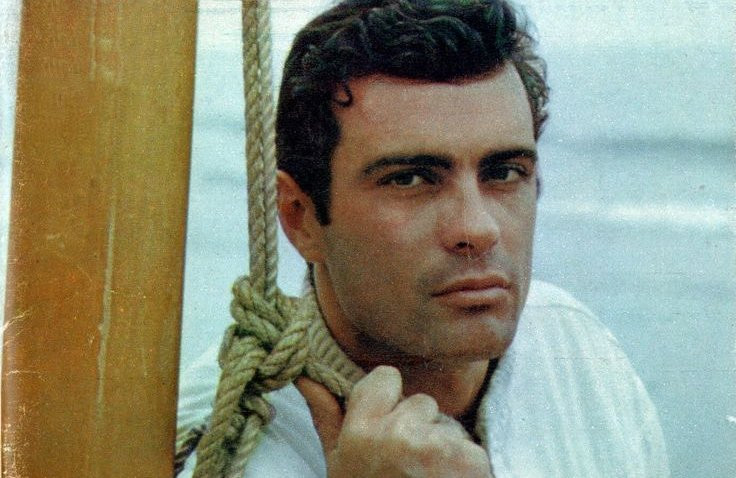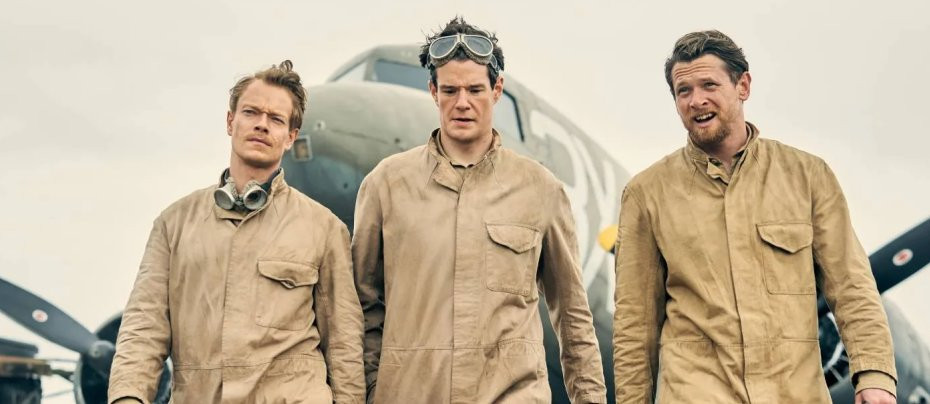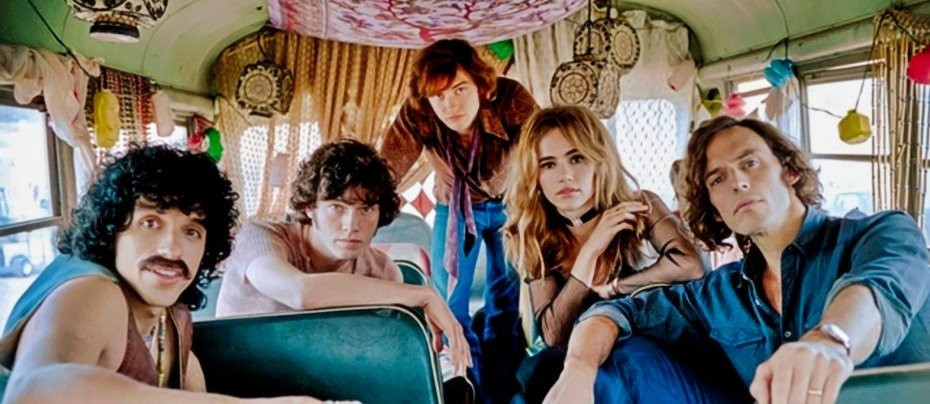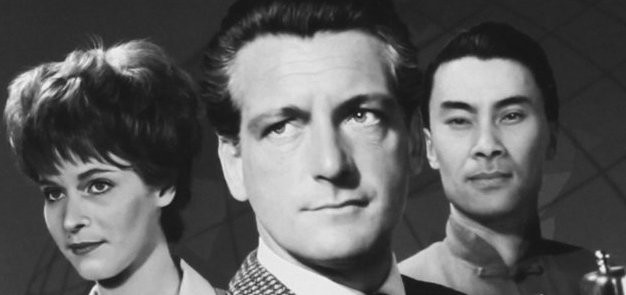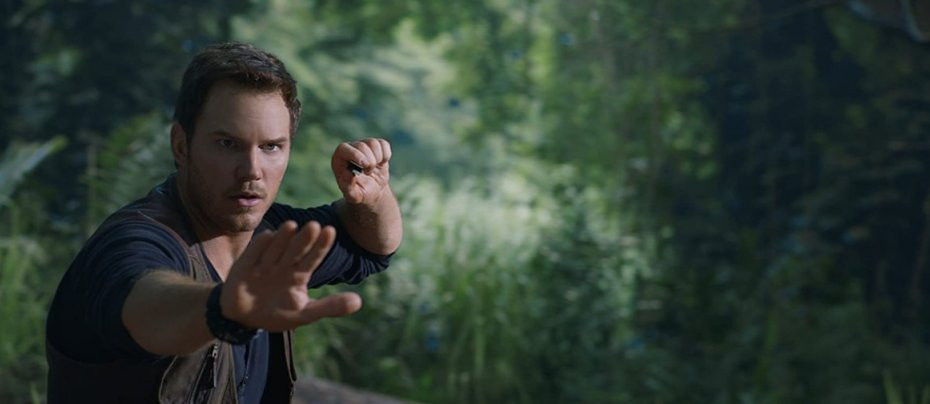
The Terminal List
2022 - United States“This is not a project where subtle acting is required”
The Terminal List reviewed by John Winterson Richards
It is usually the sign of an interesting show when mainstream critics and viewers disagree about it. That Amazon's The Terminal List has proved so contentious is perhaps surprising because, viewed objectively, it is a well acted, well directed, and well produced action thriller, a fairly straightforward example of its genre. As Abraham Lincoln would say, those who like this sort of thing will like it. Those who do not are unlikely to be watching it on the first place.

The basic plot is formulaic. Although there are the usual twists and reversals, they are for the most part predictable twists and reversals. So it is not going to spoil it to summarise The Terminal List in a sentence as basically the premise from Tom Clancy's Without Remorse with the leading character from Clint Eastwood's American Sniper.
Lieutenant Commander James Reece (Chris Pratt) is a platoon commander in the elite Navy SEALs. Having served as a specialist sniper, he has risen from the ranks and shares a tight bond of brotherhood with his men. He also enjoys what appears to be an idyllic home life with his loving wife and sweet daughter. We can see where this is going...
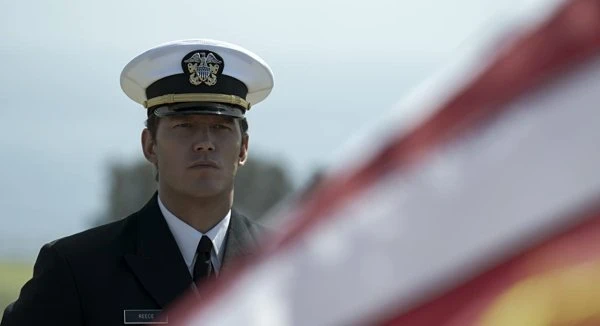
When a mission goes very badly wrong, he finds an increasing discrepancy between his memory of the events and the official record. Is there are a very elaborate "cover up" or has an explosion, followed by the shock and guilt of losing friends, disrupted the smooth functioning of his mind? Reece himself is unsure, and so are the people with whom he interacts - and so is viewer.

This aspect of the story is handled with considerable skill. We are shown everything from Reece's perspective and we soon realise that this really is unreliable. Of course, we know there must be a conspiracy in there somewhere, because this is a conspiracy thriller, but we also know that what Reece suffered often results in some form of mental trauma. It is revealed that Reece has genuine lapses of memory, minor at first before becoming more significant. The question is no longer whether he is a victim of conspiracy or brain damage but how much is conspiracy and how much is brain damage? The results of a scan are kept back from us for some time. We are kept guessing to the very end.

We also wonder how much brain damage may be impacting on his decision making. He makes some obviously bad calls, and for a calm and controlled military professional he is perhaps a bit too quick to go beyond the law and resort to extreme violence. In this he is aided by a loyal group of friends who effectively act as enablers. Taylor Kitsch plays an old comrade who now works for the CIA and Tyner Rushing a retired Army helicopter pilot whose life Reece saved in Iraq, while Marco Rodriguez is a Mexican businessman who lives on secure estate out in the desert with a small private army - the precise nature of his business remaining unspecified. Hmm. Reece also works at arm's length with a highly intelligent and driven but not particularly trustworthy internet journalist played by Constance Wu.
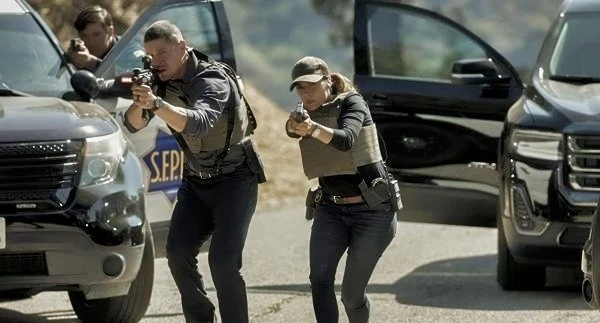
The show does not attempt to hide its cinematic influences. It starts with a bang in the form of a well paced first episode directed by Antoine Fuqua which sets the tone perfectly for all that follows. After all, Fuqua proved in Training Day that he knows how to keep the audience uncertain about a character. The next two episodes have the feel of those classic Seventies paranoid conspiracy thrillers like The Parallax View and Three Days of the Condor, the fourth episode is basically Sicario, the fifth is Heat, and the sixth is First Blood, the original Rambo film. That central trilogy is definitely the high point and the last two episodes do not really know how to top it. There are a lot plot holes and absurdities, and the ending is satisfactory rather than satisfying, but overall The Terminal List is clear about what it is trying to do and it succeeds in doing it.
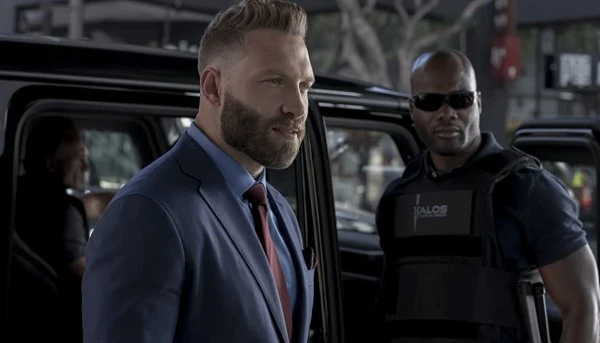
This is not meant to be a drama about complicated people. Most of the characters are roles, but there is at least some ambiguity about those roles. Reece is likeable - Chris Pratt - but there is a dark side to him and some of the other supposedly sympathetic characters that comes out more and more: these are after all people who have chosen to kill other people for a living. At the same time at least two of the supposed villains are given understandable points of view, even if they are ultimately mistaken. Most of the other villains are two dimensional, especially a bullying technology tycoon and venture capitalist who fantasises about being a Special Forces soldier, played with relish by Jai Courtney.
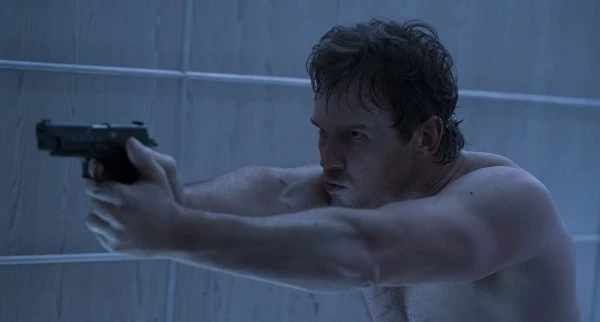
This is not a project where subtle acting is required, which is just as well because there is little on display. Having said that, Chris Pratt deserves a nod of appreciation. He has come a very long way from loveable loser Andy Dwyer in Parks and Recreation. His success as a comedy actor has not stopped him from being cast as a Special Forces type in a number of previous productions - Zero Dark Thirty (in which he was also a Navy SEAL), Jurassic World (in which he was a Navy veteran, possibly a SEAL), and The Tomorrow War (in which he was a retired Army Special Forces "Green Beret"), which was another surprise hit for Amazon the year before The Terminal List. To be honest - and this may simply be prejudice due to his association with lighter parts - he does not really convince as a hardened killer in any of these roles.
He does in The Terminal List. The usual outwardly amiable Chris Pratt character gets to do, or at least threaten, some very nasty things, and not just to the guilty. We might be tempted to excuse them on the grounds that nasty things have been done to him and those he loves, but by the end there is little he has suffered that he has not done to others - or shown himself capable of doing. When he threatens, we are in little doubt that he will follow through. We are not given time to reflect on this, or on the possibility that family man and all round good guy James Reece may have been a high functioning psychopath all along - a common type in Special Forces where the selection process favours those who can separate themselves from normal human emotions. There are, however, hints in "flashbacks" that Reece and his team would not appear so likeable to people they encountered in their professional capacity.
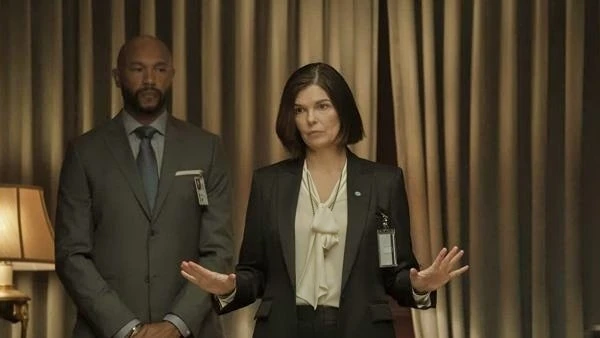
It was a brave decision for Pratt to take on such a role, and that he delivers so effectively demonstrates how he has developed as an actor in the last fifteen years. He now looks like a serious leading man. The silver medal for acting goes to Jeanne Tripplehorn for making the Secretary of Defence look credible despite the character being required to do a lot that seems unlikely (including be Secretary of Defence: at the time of writing a woman still has not held the post). Constance Wu also has some great scenes, especially with Tripplehorn.
Still it is really another of the unashamedly masculine projects with which Amazon has scored highly recently - other examples include Boss Level and Reacher as well as The Tomorrow War. They are designed to keep the adrenaline flowing while one is watching and be for the most part forgotten a few days later. On its own terms, The Terminal List is a total success.
So why all the hate from mainstream critics? It seems that, in addition to his fighting in the Middle East and on the home front, James Reece has found himself in the free fire zone of the "Culture Wars." The tone was set by the 'Daily Beast' which described the project "an unhinged right wing revenge fantasy." It should be noted that to the sort of people who are employed as critics by mainstream media platforms these days the term "right wing" is automatically pejorative. It is not so to others, including large segments of the target market for projects like this. The "right wing" label was in fact a recommendation to many. The show enjoyed good word of mouth, and this led to It being the Number One show on Amazon Prime, and to very high viewer appreciation scores on 'Rotten Tomatoes' and IMDb.

Judging the show objectively as a piece of craftsmanship, one has to side with the viewers against the mainstream critics. One also has to say that, regardless of whether one thinks calling something "right wing" is complimentary or derogatory, there is little about The Terminal List to merit that description. While Reece does not wait patiently for Government to solve his problems for him, he has good reason not to do so. Yet the main villains are not the Government so much as sleazy capitalists, "Big Pharma," and private military contractors - traditional targets of the political Left. True, the military are treated respectfully, but even the Left do that now, having learned from their mistakes during the Vietnam War. There are at least hints of a real critique of the West's overreliance on shadowy Special Forces, a live political issue (the Joint Special Operations Command employs over 50,000 people), and by the end it is clear that Reece and his colleagues have been trained and employed to do some truly horrible things themselves. So, if anything, the politics of the piece shade leftward.
In spite, or perhaps because, of a studied avoidance of fashionable political activism, Chris Pratt is sometimes described as, or assumed to be, "right wing" by commentators on both sides. It is enough in 2022 that he is openly a Christian and not overtly left wing. In fact his only known political donation was to Barack Obama - at a time when that was practically mandatory in Hollywood - and his Christianity is apparently on the liberal side.
So why the "right wing" tag? Here is a conspiracy theory about the conspiracy thriller. Hollywood and mainstream critics tend to be people with similar backgrounds and attitudes. They have long been closer than they ought to be: some journalists have become Hollywood executives, and vice versa; others would like to be in that revolving door; all need access in order to do their jobs as journalists. The net effect is that the mainstream critics and Hollywood do each other a lot of favours. This has led to a lot of distrust of what is now often described as the "shill media" or the "access media." Could the studios be using this, encouraging friendly critics to stir up controversy in order to draw attention to their products? There is certainty no doubt that in the case of The Terminal List the hostility of the mainstream critics - and the "right wing" label in particular - worked to the show's advantage in selling it to important segments of its target market. Was this deliberate? If so, is it a strategy that is being used a lot these days?
Seen this show? How do you rate it?
Seen this show? How do you rate it?
Published on August 10th, 2022. Written by John Winterson Richards for Television Heaven.


